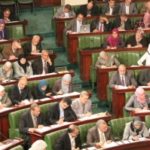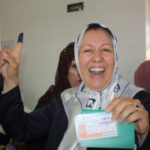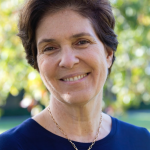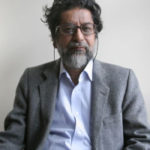This project attempts to create a discussion on democracy, liberalism and pluralism between leaders and academics in an attempt to encourage the development of greater moderation and accommodation within political discourse. The work centers on two workshops that will bring together academics and political leaders from India, Senegal and Indonesia together with leaders from Pakistan, Turkey, Egypt and Tunisia to facilitate greater understanding of different ways countries have successfully (and unsuccessfully) related to pluralism while negotiating with the beliefs and demands of religious populations.
As a part of this project, the Haas Institute’s Religious Diversity cluster hosted a two-day workshop at UC Berkeley on October 2016 that brought together academics and thinkers from diverse disciplines to share scholarship related to “Democracy and Religious Pluralism in India, Pakistan, and Turkey.”
Karen Barkey, Sudipta Kaviraj (Columbia University), and Vatsal Naresh (Yale University) are currently working on an edited volume of essays based on the conference papers and on democracy and religious pluralism in general.
The book, titled Negotiating Democracy and Religious Pluralism: India Pakistan, and Turkey is forthcoming. Please find the book description below:
The question of the relations between democracy and religious pluralism has become of paramount importance as democracies encounter increasing diversity. In Europe and in the United States diversity has increased with immigration and now in Europe, with the ongoing refugee crisis. In the United States, the particular relationship between pluralism and democracy has been contested and is increasingly fraught, and following recent developments, even mocked. In many countries where religious pluralism was part of a successful accommodation in the past, new political arrangements, democratic or mildly democratic, we find that religious pluralism has come under threat. As we enter a new era of authoritarian governments and populist politics, the future of pluralism, tolerance and democratic norms are in danger. It is in this context that we conducted our work on three important Middle Eastern and South Asian countries where democracy and religious pluralism are contentious forces to say the least, and where the forces of authoritarianism, ethnic and religious nationalism are winning ground. Turkey, India and Pakistan have each deep historical traditions of dealing with religious diversity and have emerged from imperial and colonial settings to establish democratic rule on the diversity that existed on the ground. We were eager to understand how these countries dealt with diversity, from the initial moments of enshrining constitutions to the trajectories of state-religion relations over time. The book deals with different themes that range from an historical perspective to the religious pluralism and the state, religious pluralism and the law, democracy and violence and everyday exclusions. The book puts together a collection of essays from prominent young experts in these fields, in each country.




